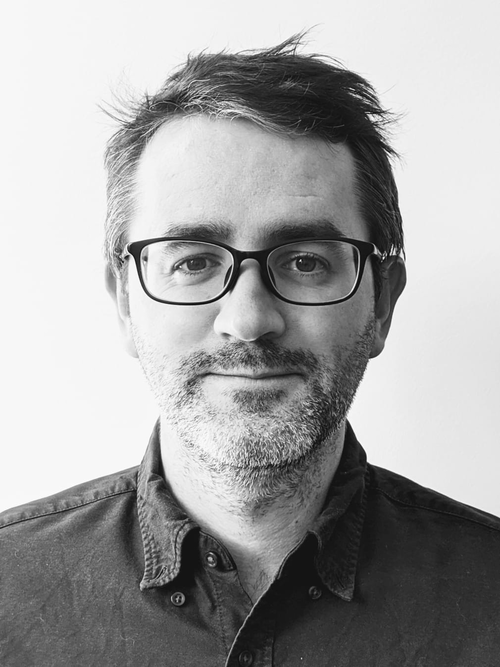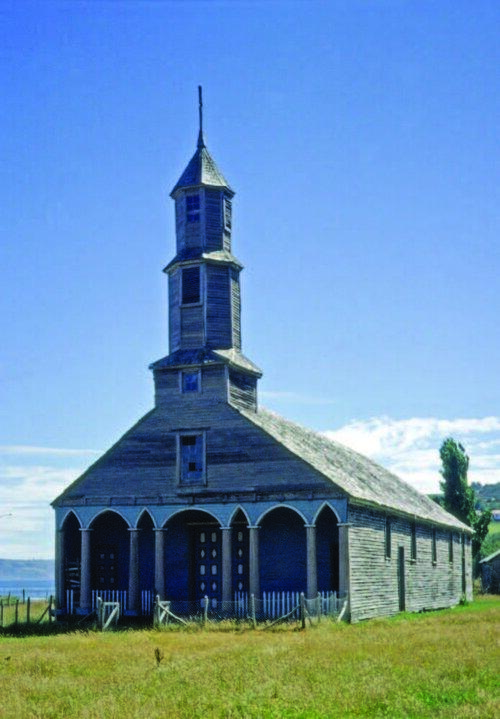Michael Baker (B.Arch ‘05) Awarded 2020 Highlands Travel Fellowship

The Carnegie Mellon University School of Architecture is pleased to announce that Michael Baker (B.Arch ‘05) has been selected as the winner of the 2020 Delbert Highlands Travel Fellowship for his proposal The Churches of Chiloé and the Jesuit “Circular Mission.” The selection committee looks forward to seeing the final results of the study, and extends its thanks to all of those who submitted proposals for consideration in this year’s call.
The Highlands Fellowship supports School of Architecture alumni in the study of collections belonging to locales to promote the professional development of awardees and contribute to the richness of our surroundings.
The Fellowship is offered on a biennial schedule. The School of Architecture will announce the call for applications for the next award cycle in Spring 2021, with the submission deadline in Fall 2021.
Read on to learn more about Baker’s project proposal and the history of the Delbert Highlands Travel Fellowship.

Project Proposal: The Churches of Chiloé and the Jesuit “Circular Mission”
Michael Baker’s project for the 2020 Delbert Highlands Travel Fellowship is The Churches of Chiloé and the Jesuit “Circular Mission.” In this study, he proposes to explore how the Jesuit “Circular Mission” system impacted the siting and design of a series of wooden churches constructed throughout the Chiloé archipelago of Chile in the 17th century. He will study how the geography of the region, local environmental conditions and building traditions, and the distributed nature of the circulating mission resulted in architectural forms very different from other centralized missions in the region, such as the Jesuit Reductions found in Bolivia and Argentina.
Of particular interest to Baker is how variations in the type occur in response to local conditions, and how the type varies with distance from the central core of Castro. Hundreds of such churches were constructed throughout the region, and approximately 60 survive today. The 16 best-preserved examples in the vicinity of Castro are part of a UNESCO World Heritage Site. Baker intends to visit both these well-known examples as well as less well documented, more remote locations to see if he can discern larger trends in siting and design that might be attributed to the particular nature of the Circular Mission.
The goal of this research is multi-fold: to bring these works to a wider audience in order to aid in their preservation; to create a lyrical document consisting of photographs, drawings, words, maps, and sound that can capture and convey to others the particular relationship these buildings have with their physical and cultural context; and to encourage a discussion about the nature of the local and the particular in an increasingly interconnected world.
About the Delbert Highlands Travel Fellowship
The Delbert Highlands Travel Fellowship supports School of Architecture alumni in the study of collections belonging to locales to promote the professional development of awardees and contribute to the richness of our surroundings. The Fellowship is named in honor of Professor Delbert Highlands, who taught courses in architectural design, design theory, and architectural history from the 1960s through the first decade of this century. He has been widely recognized as a seminal teacher whose skill and understanding enriched the educations of generations of students.
Professor Highlands emphasized the “individual,” the “particular,” and the “local” in his teaching. His courses were grounded in authoritative scholarship and meticulously presented fundamentals, but always went further by asking students to think of “this time,” “this place,” and this “occupancy.” His teaching presented prospects for a life of work that were inspiring and that would always present fresh challenges to learn more, go deeper, and design buildings that truly engage our humanity. He has been a key influence in the lives of hundreds of graduates of the School of Architecture.